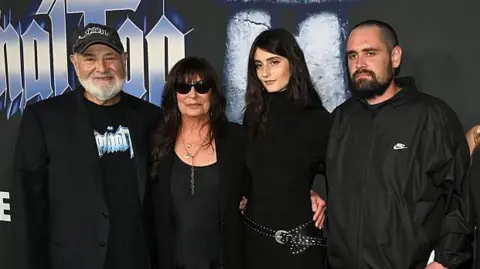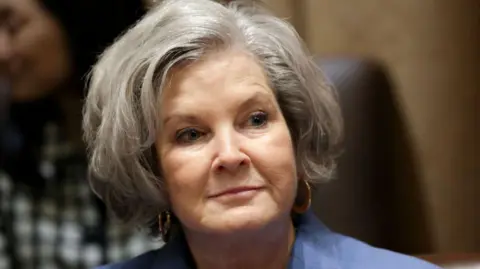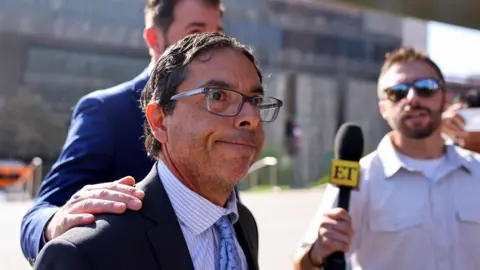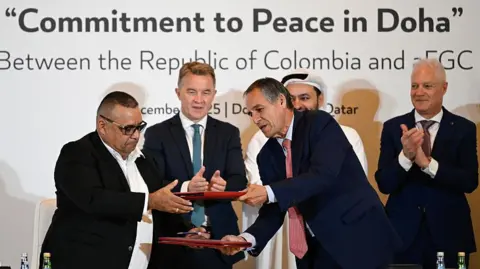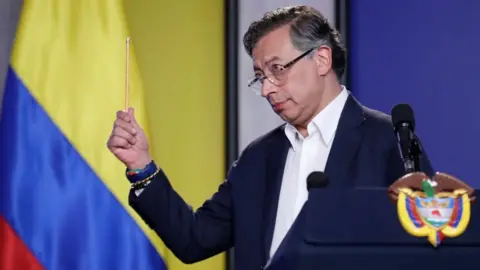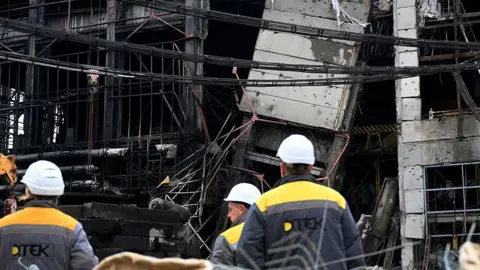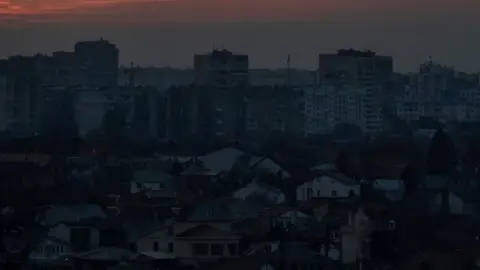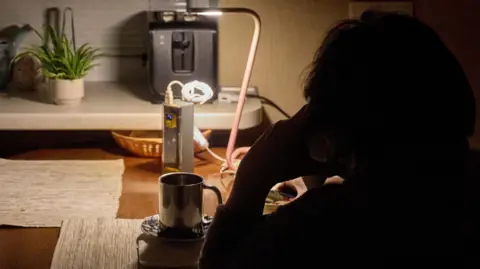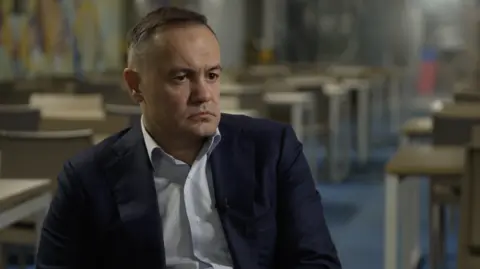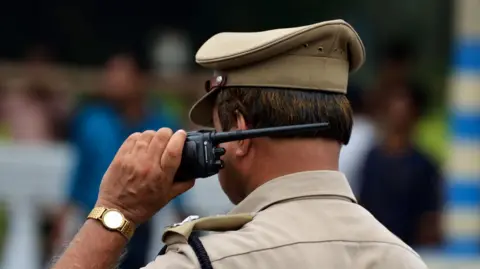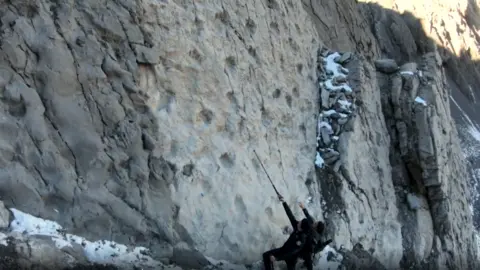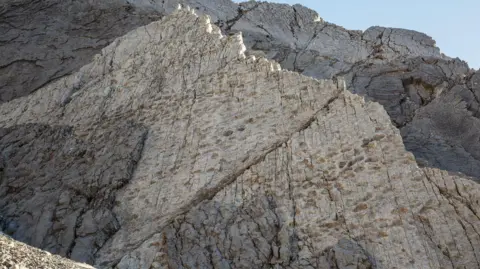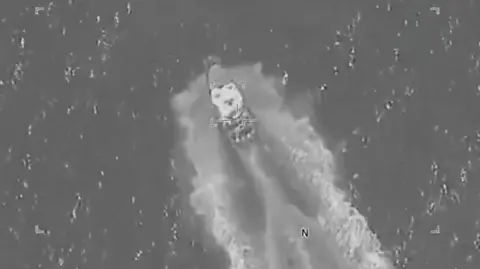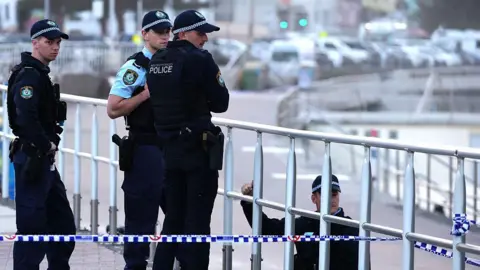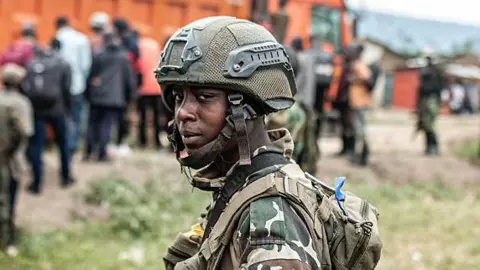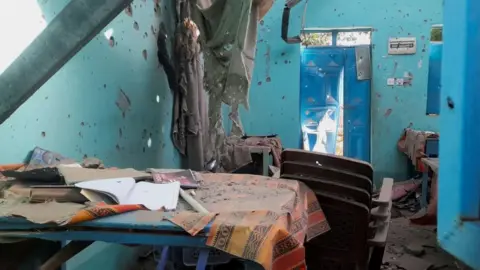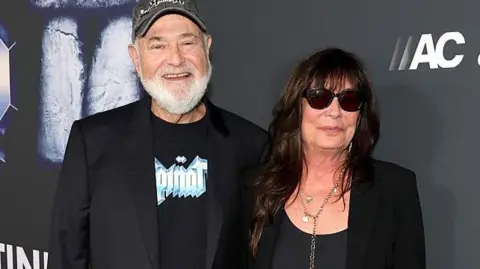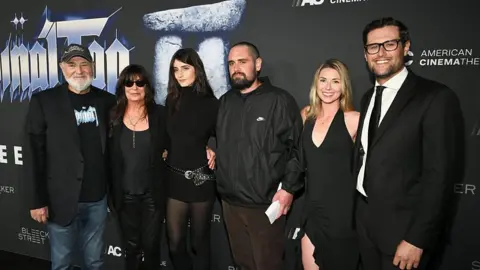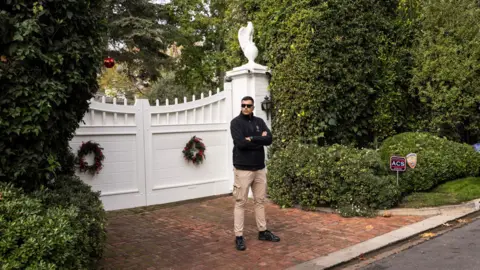White House Chief of Staff Susie Wiles has disputed portions of a Vanity Fair article in which she paints an unflattering picture of the Trump administration and many of its top officials.
In the interview, Wiles described Donald Trump as having an "alcoholic's personality" and Vice President JD Vance as having been a "conspiracy theorist" for a decade.
But in a post on X, Wiles said that Vanity Fair disregarded "significant context" to create "an overwhelmingly chaotic and negative narrative" about the administration.
Wiles, 68, played a key part in Trump's successful 2024 presidential campaign before becoming the first woman to be White House Chief of Staff.
Over the course of nearly a dozen interviews with Vanity Fair, Wiles talked about a wide range of issues, including handling of Epstein files, Trump's legal actions against politcal rivals, and also about personalities around the president.
She admitted that "there may be an element of" retribution in Trump's efforts to pursue criminal cases against political adversaries or perceived foes.
"I don't think he wakes up thinking about retribution," she added. "But when there's an opportunity, he will go for it."
Wiles is widely considered among the most powerful members of the Trump White House in his second term.
Prior to becoming Chief of Staff, Wiles had a long history working with Trump, including as his campaign manager in Florida in 2016 and as the head of his fundraising apparatus, Save America.
In the interview, she credits her upbringing with an alcoholic father as what enabled her to work with the president.
"High-functioning alcoholics or alcoholics in general, their personalities are exaggerated when they drink," she said. "So I'm a little bit of an expert in big personalities."
While the president does not drink, she said Trump has "an alcoholic's personality" and governs with the mindset that "there's nothing he can't do. Nothing, zero, nothing".
Among the other figures that Wiles commented on was JD Vance, a one-time critic of Trump who has since become a close ally and vice-president.
Wiles suggested that Vance's shift in perceptions was "sort of political".
Speaking to reporters at an event on Tuesday, Vance said he had not read the article, but that he only believes in conspiracy theories that are "true" - citing reports of former President Joe Biden's ill-health as an example.
Her strongest comments were reserved for tech billionaire Elon Musk, who led cost-cutting efforts at the Department of Government Efficiency - or Doge - before leaving the government in May.
Shortly thereafter, Musk and Trump had a public spat that saw the two men trade barbs and insults over social media.
Wiles described Musk as an "avowed Ketamine [user]" who "sleeps in a sleeping bag in the EOB", the Executive Office Building adjacent to the White House.
"He's an odd, odd duck, as I think geniuses are," she said. "You know, it's not helpful, but he is his own person."
Looking back on Musk's cost-cutting efforts, Wiles said that she was against the gutting of the US Agency for International Development, or USAID, saying she was "initially aghast" at the idea.
"I think that anybody that pays attention to government and has ever paid attention to USAID believed, as I did, that they do very good work," she recalled.
"Elon's attitude is you have to get it done fast. If you're an incrementalist, you just won't get your rocket to the moon," Wiles said. "With that attitude, you're going to break some china. But no rational person could think the USAID process was a good one. Nobody."
On Tuesday morning - hours after the Vanity Fair article was published - Wiles took to X, accusing the magazine of "disingenuously framed hit piece" aimed at her, Trump and other cabinet members.
"Significant context was disregarded and much of what I, and others, said about the team and the President was left out of the story. I assume, after reading it, that this was done to paint an overwhelmingly chaotic and negative narrative about the President and our team," she wrote.
When contacted for comment on the story, the White House also defended Wiles.
In a statement sent to the BBC, Press Secretary Karoline Leavitt said that Wiles "has helped President Trump achieve the most successful first 11 months in office of any President in American history."
"President Trump has no greater or more loyal advisor than Susie," Leavitt added. "The entire administration is grateful to her steady leadership and united fully behind her."
Speaking to reporters outside the West Wing later in the day, Leavitt accused Vanity Fair of "bias of omission" by excluding other interviews conducted with White House staff and taking Wiles' words "wildly out of context".
Trump and Musk have yet to comment on the Vanity Fair piece.

 BBC
BBC